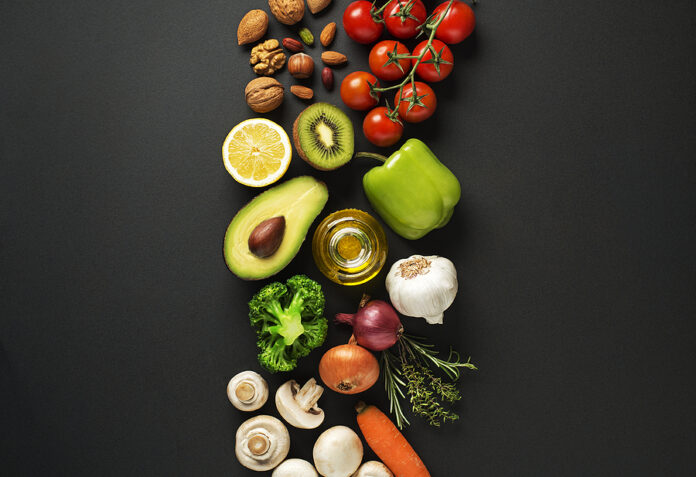
Once again, Whole Foods Market picked the brains of its team of experts to find out what new, innovative products will be populating grocery store shelves next year. Here are their picks — including plant-based products, healthy additions, and fired-up flavors.
Spotlight on wellness
We’ve already seen a growing demand for health-boosting, functional foods in 2020. And Whole Foods doesn’t see this trend slowing down any time soon. Consumers are increasingly looking to the grocery section for ingredients they’d normally get from supplements — like probiotics, superfoods, and essential vitamins. Broths, adaptogens, and fermented foods and beverages are also on the shopping list.
The most important meal of the day
With more people working from home, there’s more time to sit down and start the day with a healthy, hearty breakfast. Rather than grabbing a granola bar and running out the door, households will be stocking up on packaged breakfast products like plant-based sausage, pancake cups, and egg bites.
Spicing up the staples
Another thing consumers have more time for is cooking, and with that comes a desire to bring new life to the classics. Go-to staples like soups, pasta, and sauces will take on some adventurous flavors — think chai masala, applewood-smoked salt, and hearts of palm.
A new look for coffee
Coffee is the pick-me-up of choice among Americans — in fact, most would rather have coffee than energy drinks. But coffee is taking on fresh forms heading into next year. Granola bars, smoothies, yogurt, and more will get an extra kick of flavor and fuel with the addition of java.
Baby food evolves
Innovative foods aren’t just for adults. Parents will find an abundance of options in the baby food aisle, with ingredients ranging from purple carrots and chickpeas to rosemary and flaxseeds. Portable, squeezable packaging is becoming more prevalent, too.
The rise of upcycled food
To help cut down on food waste, food companies are salvaging leftover ingredient components and turning them into upcycled food products. This practice keeps usable ingredients out of the trash while making the best use of the energy involved in the production, transportation, and preparation of the ingredients. Upcycled products are bound to be a hit among consumers who prioritize sustainability.
The next generation of oils
The reign of vegetable and olive oils may soon be coming to an end. Sunflower oil is rising up as a versatile alternative for cooking, topping salads, and producing packaged foods. Meanwhile, other oils, like those made from walnuts and pumpkin seeds, are creating flavorful favorite dishes.
Kombucha with a kick
Naturally gluten-free and brimming with probiotic cultures, kombucha has already enjoyed success in the beverage aisle. But now it’s getting a different twist. Hard kombucha brings all the benefits and bubbles into a refreshing alcoholic drink.
Chickpea cravings
Chickpeas are the new cauliflower, Whole Foods says. The protein and fiber-rich legume found in hummus and falafel is rapidly extending its reach into pastas, flours, cereals, and more.
Jackfruit jerky and beyond
Move over beef jerky. The plant-based movement has ventured into jerky territory, turning jackfruit, mushrooms, and other fruits and vegetables into snackable, shelf-stable products. The jerky process preserves the taste and nutritional value, while spices and drizzles like ginger, chili, and cacao keep things interesting.








